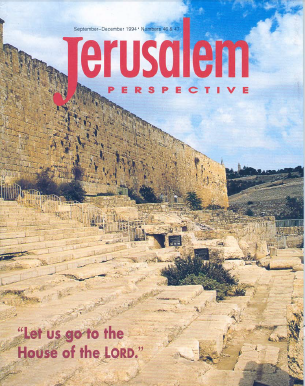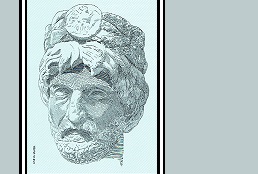Biblical and post-biblical genealogies are more than simple pedigrees, yet the wealth of their content is couched in such plain and uninviting format that many of us simply skim them. In this article you will discover how exciting such genealogies can be.
The interrelationship between God, land and man is established in the Book of Genesis. God and land are constants, while man is a variable. The relationship between the three is contractual, and biblical genealogy provides the means through which man, limited by his mortality, is able to maintain his relationship with God and land from one generation to the next.
Biblical Genealogy
The lands God promised to Abraham, Isaac and Jacob (Israel), patriarchs of the Israelites, and to Esau, patriarch of the Edomites (later known as the Idumaeans) were to be their descendants’ “everlasting possession” (Gen. 17:8; Deut. 2:5). Moses and Joshua divided the inheritance of the sons of Israel among the tribes, and the leader of each tribe subdivided the tribal inheritance among that tribe’s families (Num. 32:33, 34:16-29; Josh. 14:1-5, 18:1ff.). The inheritance of each family was to pass from father to son(s), from generation to generation (Gen. 17:8; Num. 27:8-11; 36:7, 9).
Premium Members and Friends of JP must be signed in to view this content.
If you are not a Premium Member or Friend, please consider registering. Prices start at $5/month if paid annually, with other options for monthly and quarterly and more: Sign Up For Premium

- [1] Quotations from Josephus are from the Loeb Classical Library edition (London: William Heinemann Ltd., and Cambridge, MA: Harvard University Press, 1927-1965). ↩
- [2] See Emil Schürer, The History of the Jewish People in the Age of Jesus Christ (175 B.C.-A.D. 135) (ed. Geza Vermes, Fergus Millar and Matthew Black; Edinburgh: T. & T. Clark, 1973), 1:477-479. ↩



